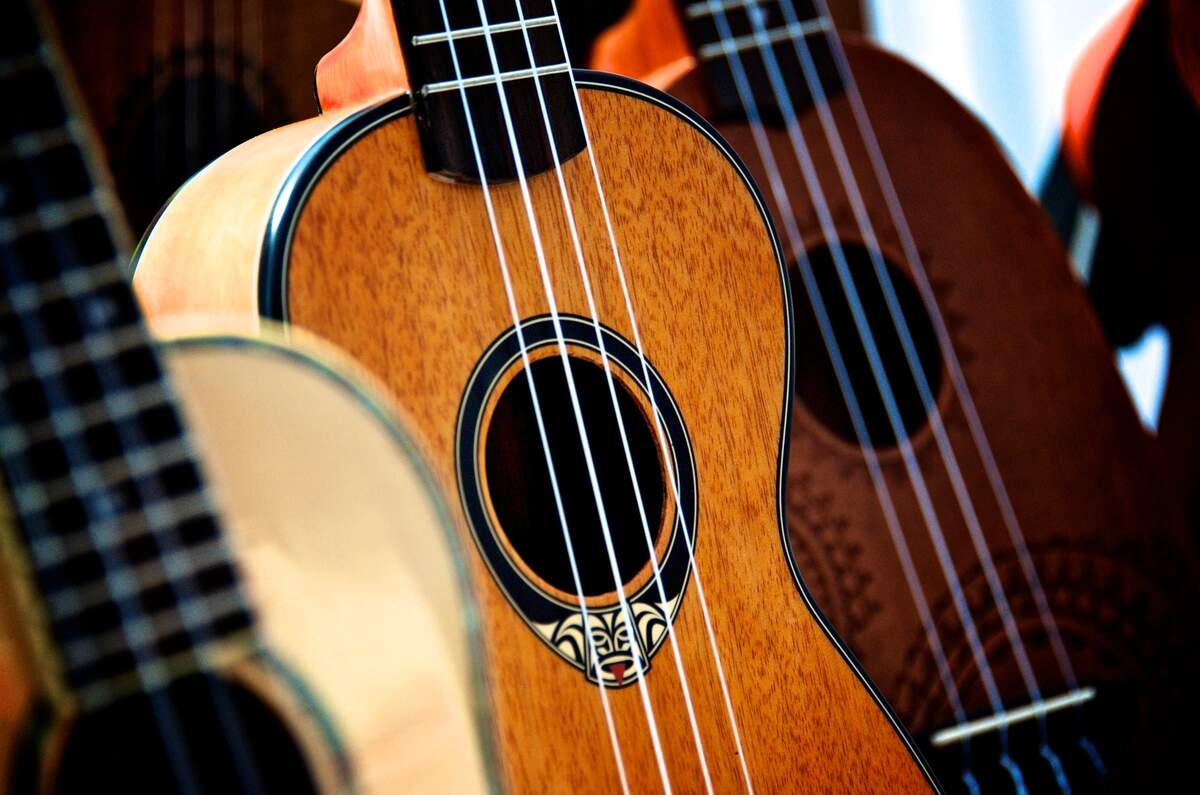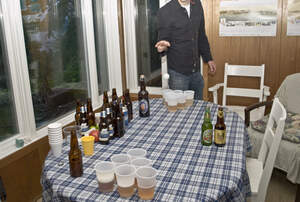

National Play Your Ukulele Day
Observed
annually on May 2nd
Dates
Hashtags
Sources
http://guitarconfidence.com/guitar-lessons/interesting-facts-about-ukulele/
http://www.softschools.com/facts/music_instruments/ukulele_facts/3065/
https://cupcake4today.wordpress.com/2010/05/02/national-play-your-ukulele-day/
https://www.thefactsite.com/2014/10/unusual-ukulele-facts.html
https://www.wikidates.org/wwholidays/national-play-your-ukulele-day-2018.html
Today is National Play Your Ukulele Day! Similar in shape to the guitar, and also having strings, the ukulele is often simply called a uke. Some are shaped similarly to pineapples, and fittingly called pineapple ukuleles. Ukulele means "jumping flea" in Hawaiian and was so named because it appeared as if fingers were jumping on the fretboard when the instrument was being played.
There are four main sizes of ukuleles, the soprano being the standard size. The other most popular sizes are the concert, tenor, and baritone. There also is the very small sopranino, and the large-sized bass and contrabass. Ukuleles usually have four strings—the G, C, E, and A—but sometimes strings are paired so there are eight on the instrument. In Hawaii, they have traditionally been made with koa wood, and higher quality ukes are often made with mahogany. Cheaper ones are made of wood such as spruce or plywood, or with plastics. Some ukuleles have been made out of cigar boxes.
The ukulele was developed from a few instruments, including the braguinha, cavaquinho, rajão, and machete, that were brought to Hawaii by immigrants from the Portuguese islands of Madeira. The first ukulele was made in 1879, and three cabinet makers were responsible for creating many of them early on: Augusto Dias, Jose do Espirito Santo, and Manuel Nunes. Hawaiian King Kalakaua integrated them into royal gatherings, and they became widely popular on the island about a decade after their creation.
Interest in ukuleles in the mainland United States was sparked at the Panama-Pacific International Exposition in 1915, and the instrument came to prominence in the United States during the Jazz Age and the Great Depression, hitting its peak in popularity in the mid-twentieth century. Popular post-World War II era Hawaiian-influenced songs featuring the ukulele include "Christmas Island" by the Andrews Sisters, with Guy Lombardo and His Royal Canadians, and "Mele Kalikimaka" by Bing Crosby and the Andrew Sisters. Elvis Presley released Blue Hawaii in 1961, as a soundtrack to the film of the same name. In 1968, Tiny Tim's version of "Tiptoe Through the Tulips" went to #17 on the Billboard charts. Even the Beatles used the ukulele in some of their songs, such as at the end of "Free as a Bird," and George Harrison was an avid collector of the instrument. By the end of the 1960s, the ukulele's moment in popular music had passed, and it was mainly being used as a children's toy. Although, some others of note continued to use it, such as Neil Armstrong, the first man to set foot on the moon.
But, there was a resurgence of the instrument's use in popular music during the late twentieth and early twenty-first centuries. Israel Kamakawiwo'ole's medley of "Somewhere Over the Rainbow/What a Wonderful World" gained wide acclaim. Jason Mraz's "I'm Yours" became the best selling ukulele-centered song ever, spending 76 weeks on the Billboard top 100. Jake Shimabukuro has also helped to restore popularity in the instrument with his virtuosic playing. While not everyone has the same talent as him, today is still the perfect day to play the ukulele!
How to Observe National Play Your Ukulele Day
Celebrate the day by playing your ukulele. If you don't have one you could buy one, and pick up some music books as well. You could listen to some of the recordings listed in the Description, to some rock and roll songs adapted to the instrument, or to old recordings by George Formby Jr., a popular comedic ukulele player from England in the early to mid-twentieth century. Learn more about ukuleles from the The Ukulele Hall of Fame Museum, or support them by becoming a member.





















